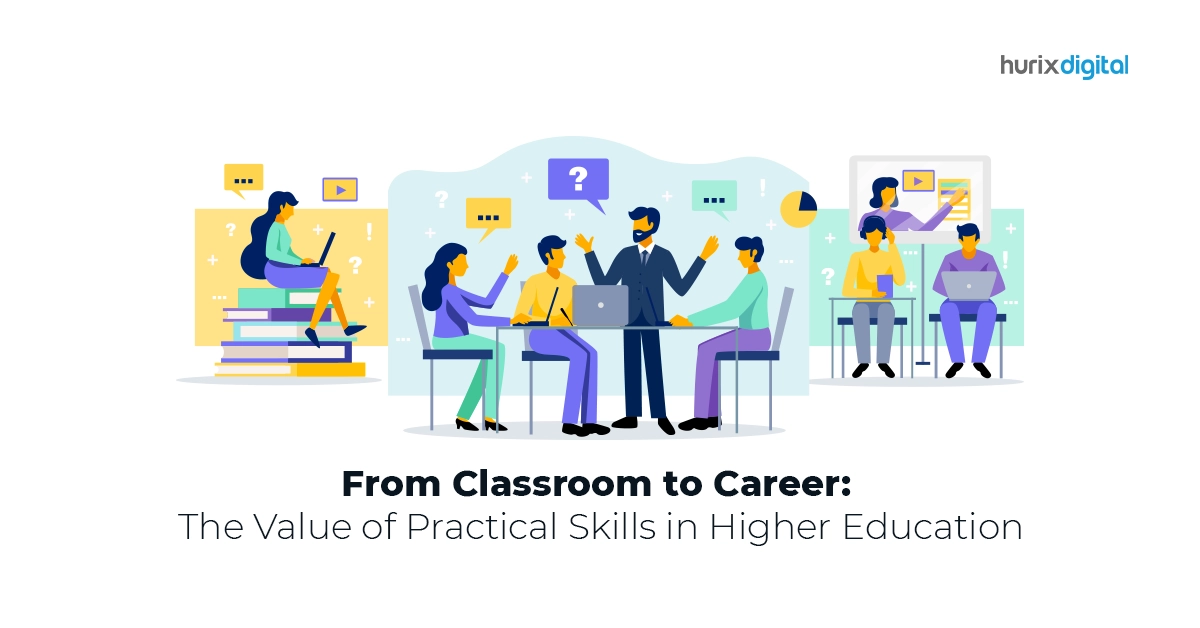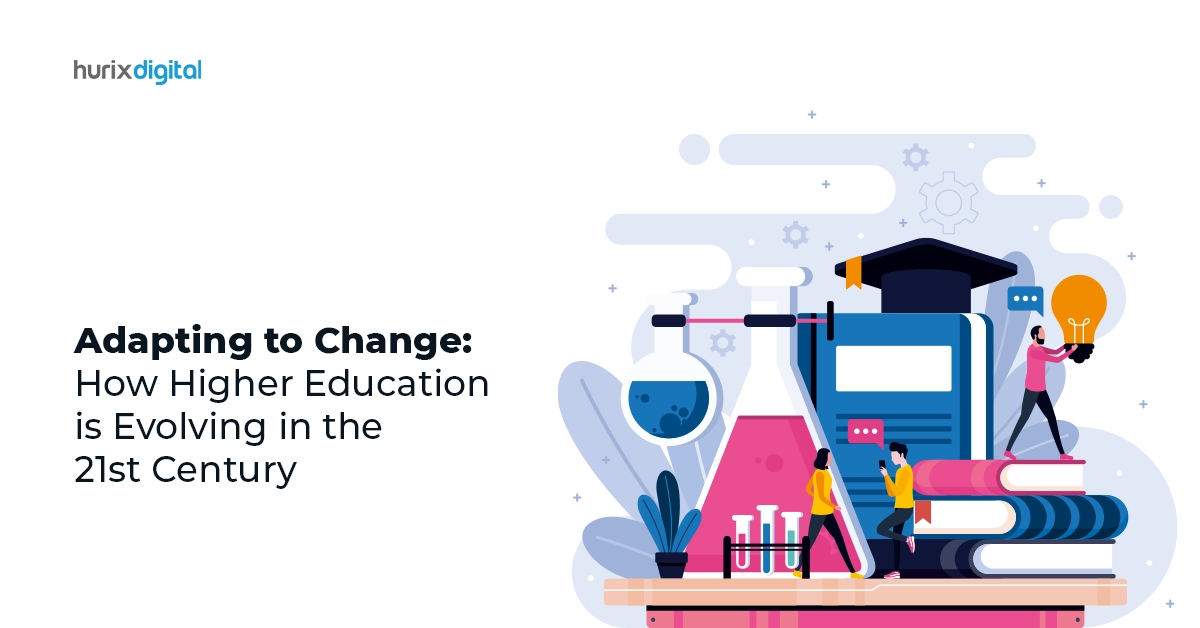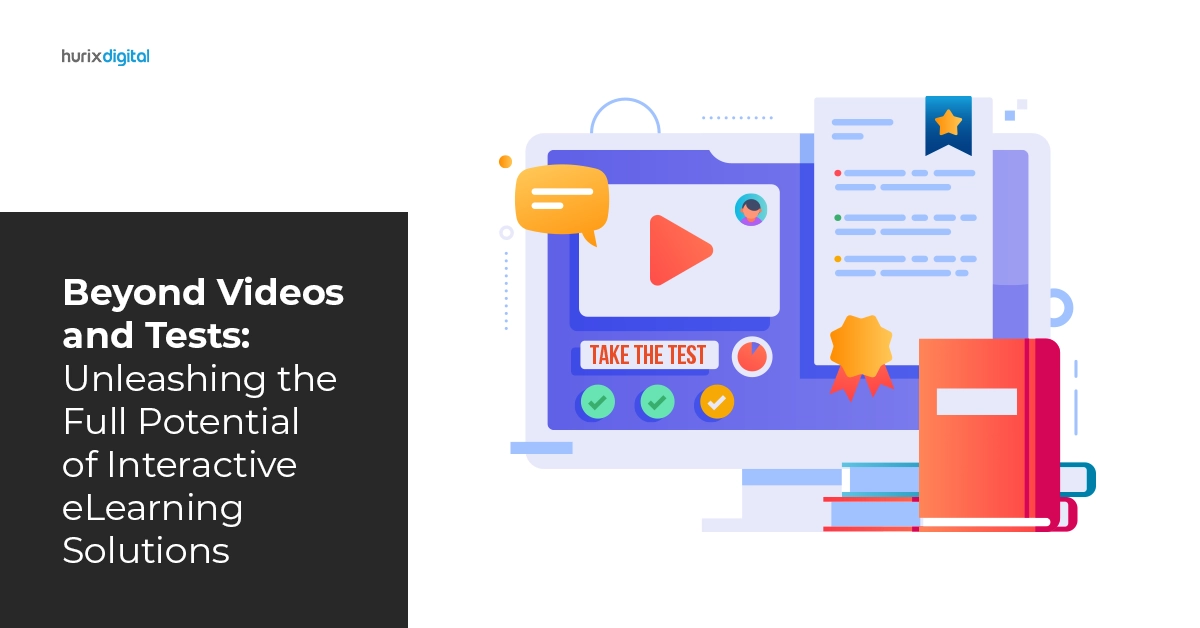This blog talks about reasoning e-Learning is replacing traditional higher education courses.
The phrase ‘higher education’ may make you think of a lecture hall where students attentively listen to the professor and take notes. But this notion is steadily being side-lined by the growing use of the internet, which has become the favorite channel among millennials to get reliable information.
The internet, coupled with easy access to smartphones and tablets, is providing more and more ways of learning and slowly shifting the focus away from traditional higher education courses.
The education sector has slowly realized the benefits of online learning. Once looked down upon, online learning now is widely accepted because it allows educational institutions to save costs and reach a wider audience. For students, this paradigm shift is also proving to be a veritable goldmine.
It gives them a rewarding experience by broadening their points of view through interaction with diverse students with equally diverse interests. As online programs surpass traditional higher education courses on many metrics, including popularity, it has sparked a constant debate between the two types of learning.
Here are top 9 Reasons for the Growth of e-Learning in Education.
To iron out these differences, here is our list of six major gaps in traditional higher education courses and why online learning is becoming a viable alternative.
1. Online Learning is More Flexible
Online learning is fundamentally flexible since learners do not have to sit in classrooms. They can access the training at their convenience and at their own individual pace. Students can also change the speed of learning, unlike traditional higher education courses that are more rigid. It gives them the flexibility to manage schedules for these classes, where they can study, finish assignments, and learn with more freedom.
In contrast, traditional classroom set up goes with the flow of the teacher and, more importantly, cannot be accessed from anywhere else or on any device. A great example of flexible online learning is the edX learning platform offered by the world-famous Harvard University in collaboration with MIT.
Many of the courses on edX are not only free but also self-guided and ready to start depending upon the schedule and convenience of the student.
Learn how institutions can improve their higher education course enrolment.
2. Multi-Channel Delivery
Because e-learning courses are inherently flexible, students can choose their style of learning. Unlike traditional higher education courses, digital training is delivered over the web and provides multiple options for students to choose the most effective way of learning.
Learners can choose from self-paced courses in multiple disciplines or classroom-type setup that includes live online training with remote instructions. For instance, Stanford University, one of the world’s leading teaching and research institutions, offers several courses online on multiple platforms, allowing students to view video lectures, get involved in forums and chats, take quizzes and also participate in various group projects.
This level of customization and delivery is not possible in traditional learning, where the teacher must finish the assigned course within a given time frame. Some examples of multiple channels used for course delivery include emails, videos, mobile apps, etc.
3. Enables Learning Through Social Interaction
Contrary to popular belief, online learning provides a lot more social interaction opportunities than traditional higher education courses. It allows learners to interact with their peers or even with the instructor on online forums, apps or other social media channels.
Online social interactions also let students know the views of other students sitting in different countries. In contrast, in a classroom setup, social interaction is face-to-face and with a limited number of people.
However, face-to-face interaction is sometimes a big motivator for people who like to interact with the instructor regularly. In-classroom training allows for more detailed discussions and Q&A sessions. For people who prefer such in-person interactions, synchronous online courses can greatly help and provide a similar experience within the comfort of their homes.
In the recent scenario of lockdowns caused by the Cocid-19 pandemic, most educational institutions have transitioned to online learning. Here’s more on online learning courses and whether they are the new reality for institutions and students .
4. Online Learning is Cost-Effective
Online courses and programs are more cost-effective than traditional higher education courses since they can be reused and are not dependent upon instructors. Digital learning is a one-time investment for businesses and institutions and allows them to re-purpose the existing content when the need arises.
It is also cheaper for learners since students can save a lot of money spent on tuition fees and boot camps while having greater flexibility. In contrast, traditional courses are expensive since the investment in creating the course is higher.
According to reports, an online degree can cost students an average of $30,000, while pursuing a degree at a university or college in the traditional way can cost a whopping $85,000 (The University of Potomac).
5. Provides Access to Multiple Courses
Since e-learning is not bound by place or time, it gives learners easy access to a plethora of courses online based on their interest and desire to up-skill. These courses can be taken at any time and place. The only thing required from students is a level of commitment to complete these courses.
While traditional higher education courses require monitoring and enforced discipline, digital learning requires the candidate to be self-disciplined and motivated. They should be able to prioritize tasks and set personal deadlines to complete the course. Without all this, students may not be able to perform properly in the long run.
White Paper:
Can the US Higher Education Publishing Industry Leverage A Subscription Model
6. Saves Time and Commute
Online learning has also given way to a blended learning approach, whereby students have the freedom to attend classes online as well as offline. The blended learning experience is increasingly becoming popular since its curriculum is designed to include traditional, online coursework and in-person learning.
Students can avoid the time spent in travelling to their classes and take their lessons right at home. Attending online classes simply requires a stable internet connection.
The Verdict
Not so long ago, online courses were thought to be inferior to traditional higher education courses and degrees. But with the democratization of the internet, this notion is slowly changing. With so many factors to consider, one thing is clear: institutions cannot have a one-size-fits-all approach to learning.
Both online and brick-and-mortar classroom courses have their own advantages and disadvantages. Students prefer online courses since they provide more flexibility and variety.
Related Read:











